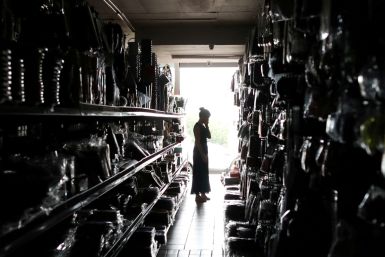New Electricity Minister Says Load Shedding Not Going Away

New Electricity Minister, Kgosientso Ramokgopa will be working on the electricity crisis, however, load shedding is "definitely not going to go away" overnight.
Energy company, Eskom which is responsible for providing electricity in South Africa will be working with the new electricity minister in order to "turn around the performance of existing power stations and to accelerate the procurement of new generation capacity," President Cyril Ramaphosa said, EWN reported on Tuesday.
"Will load shedding end tomorrow? No. It's definitely not going to go away," Ramokgopa told the outlet. "But as the president says, the severity and regularity of load shedding is something that's on our radar and we will share with you our implementation plan."
He continued, "The resources and which entitles are responsible, which parts of society will take the lead and ultimately the executive authority - I'll drive that."
Ramokgopa, who was the former mayor of Pretoria, was appointed as the new electricity minister on March 1.
The president announced the results of the cabinet reshuffle on Monday, where Paul Mashatile, Khumbudzo Ntshavheni, Dr. Nkosazana Dlamini Zuma, Mondli Gungubele and many more ministers were appointed to new positions.
After the cabinet reshuffle was announced, Ramokgopa shared his thoughts on becoming the Minister of Electricity on Twitter.
"I am humbled by the vote of confidence given to me by His Excellency President @CyrilRamaphosa as Minister of Electricity," he wrote. "We have a mammoth task ahead of us to resolve the energy crisis that confronts our country."
I am humbled by the vote of confidence given to me by His Excellency President @CyrilRamaphosa as Minister of Electricity. We have a mammoth task ahead of us to resolve the energy crisis that confronts our country. https://t.co/E0UdMui9Ur
— Dr Kgosientsho Ramokgopa (@Kgosientsho_R) March 6, 2023
He continued, "In the immediate, we have a primary responsibility to turn around the performance of existing power stations and stabilize our energy supply, whilst adding new capacity to the grid."
According to multiple reports, South Africa's load-shedding crisis is pushing the country into recession. Nedbank shared an insight into the country's financial situation, revealing that they have probably entered a recession phase last year.
"Based on our calculations, real GDP is likely to shrink by a further 0.4% in Q1, which means that the economy probably entered a recession in the final quarter of last year," Nedbank said, BusinessTech reported. "While load-shedding is mainly to blame, other downward pressure emanated from sticky inflation, exceptionally high food prices, and the sharp rise in interest rates."
The bank disclosed that during last year's fourth quarter, only two days they had no power cuts. "These paralysing disruptions hurt output and sales in all industries while driving up production costs across the board," the bank added.
There are several factors due to which South Africa is dealing with electricity crises such as shortage of electricity generation capacity, lack of new power plants, seasonal changes in electricity demand and no proper maintenance of power plants, which leads to unplanned temporary shutdowns.
To make it easier for the citizens to understand when they won't get electricity, Eskom has shared a load-shedding schedule on their official website as per different provinces, cities and towns.
© Copyright 2025 IBTimes ZA. All rights reserved.


















